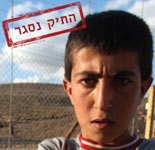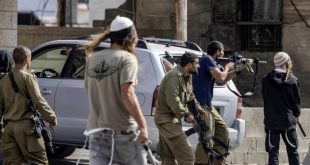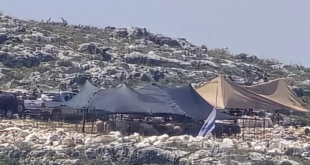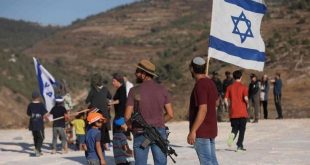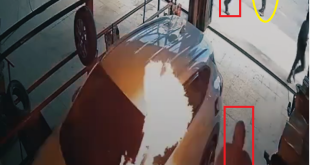In March 2014, soldiers shot and killed Yusef a-Shawamreh, a 14-year-old Palestinian boy, as he went through a gap in the Separation Barrier in order to pick edible plants to help provide for his family. B’Tselem’s investigation indicates that he was shot in broad daylight, with no advance warning and although he posed no danger. Details of the incident
On 10 July 2014, roughly four months after the incident took place, Military Advocate for Operational Matters Lt. Col. Ronen Hirsch notified B’Tselem that the Military Advocate General (MAG) had decided to close the investigation without serving any indictments as there was “no suspicion that the open-fire regulations had been breached nor that any military personnel were involved in criminal action”. In the letter, Lt. Col. Hirsch wrote that four soldiers who had stationed an ambush spotted three Palestinians crossing the Separation Barrier after having sabotaged it. The soldiers then carried out suspect-arrest procedure, ending with one soldier shooting at the lower part of a-Shawamreh’s leg. However, the shot hit a-Shawamreh in the waist, killing him.
On 14 July 2014, B’Tselem wrote to the Military Police Investigation Unit (MPIU) and requested a copy of the investigation file, in order to consider appealing the decision to close the case without filing charges.
At present, although B’Tselem has not yet received the copy of the file, it would seem that the MPIU investigation and the MAG’s decision relied only upon examining the conduct of the soldiers during the incident itself. They examined neither the orders the soldiers were given nor the decision to mount an armed ambush at that spot.
First, Israel’s security forces in the area are well-aware that Palestinians have been crossing the Separation Barrier at that particular point to pick gundelia (Arabic: ‘Aqub, an edible plant) on their own farmland that was cut off from them by the Separation Barrier. Israeli security forces also know that springtime is the season that Palestinians cross the Barrier to harvest gundelia. Consequently, the decision to mount an armed ambush with live ammunition there is highly questionable and, at best, indicates faulty discretion on the part of the commanders.
Second, the military’s open-fire regulations prohibit firing live ammunition at Palestinians crossing the Barrier, as long as they pose no danger. However, the regulations are so phrased as to present the prohibition as an exception to the rule, the rule being that a Palestinian who attempts to cross the Separation Barrier is “suspected of a dangerous crime”. With regulations framed in this way, it is almost inevitable that Palestinians will be fatally shot, even when the regulations themselves do not justify such fire. The responsibility for harm to civilians in these cases lies also with those in charge of framing the regulations. Investigations must, therefore, not be limited to the actions of the soldiers in the field.
The assertion that the soldiers did not breach regulation in the present case is tantamount to sanctioning the intolerable fatal outcome: a 14-year-old boy who posed no danger whatsoever was killed in broad daylight. Lt. Col. Hirsch maintains that the soldiers acted in accordance with regulations. Yet, irrespective of whether or not the soldiers did in fact follow regulations, the appalling outcome of the incident cannot be tolerated. The responsibility for this young boy’s death lies both with the military’s top commanders and with its legal counsel, who are jointly responsible for formulating regulations, for determining policies for amubshes, and for closing the investigation, with the all the future ramifications that this decision bears.
Background:
At around 7:00 A.M on Wednesday 19 March 2014, soldiers shot and killed Yusef a-Shawamreh, 14, as he crossed the Separation Barrier. A-Shawamreh, of the village of Deir al-‘Asal al-Foqa, southwest of Hebron, was shot when he and two friends, Zahi a-Shawamreh, 13, and al-Muntaser Beallah a-Dardun, 18, were going through a wide breach in the Separation Barrier. The two other teenagers were not hit, and soldiers took them in for questioning at the Kiryat Arba police station. They were released later that day.
B’Tselem’s investigation indicates that the three youths were crossing the barrier in order to pick gundelia [Arabic: ‘Akub], a thistle-like edible plant annually harvested at this time of year that serves as an important source of income for local residents. The section of the Separation Barrier in this area lies within the West Bank, some 200 meters east of the Green Line, not far from the village homes. The a-Shawamrehs own farmland that is now separated from them by the barrier, and that land is where the three youths were heading to gather plants. For the past two years there has been a wide breach in that section of the Separation Barrier. The youths went through it and crossed the patrol road on the other side. The two surviving youths told B’Tselem field researcher Musa Abu Hashhash that they heard three or four shots as they got off the road, fired with no advance warning. A-Shawamreh was hit and one of his companions helped him get back to the road. At that point, soldiers emerged from an ambush several dozen meters away.
The soldiers provided first aid to the wounded a-Shawamreh and apprehended his friends. A-Shawamreh was taken by military ambulance to an Israeli hospital, Soroka Hospital in Beersheba, where he was pronounced dead. A-Shawamreh’s body was then taken to ‘Aliyah Hospital in Hebron, where an external examination found a single bullet wound to his left thigh.

 العربية
العربية עברית
עברית Türkiye
Türkiye Русский
Русский Français
Français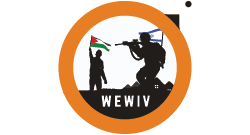 We Watch Israeli Violations Specialized website in monitoring and documenting Israeli violations against Palestinians
We Watch Israeli Violations Specialized website in monitoring and documenting Israeli violations against Palestinians

